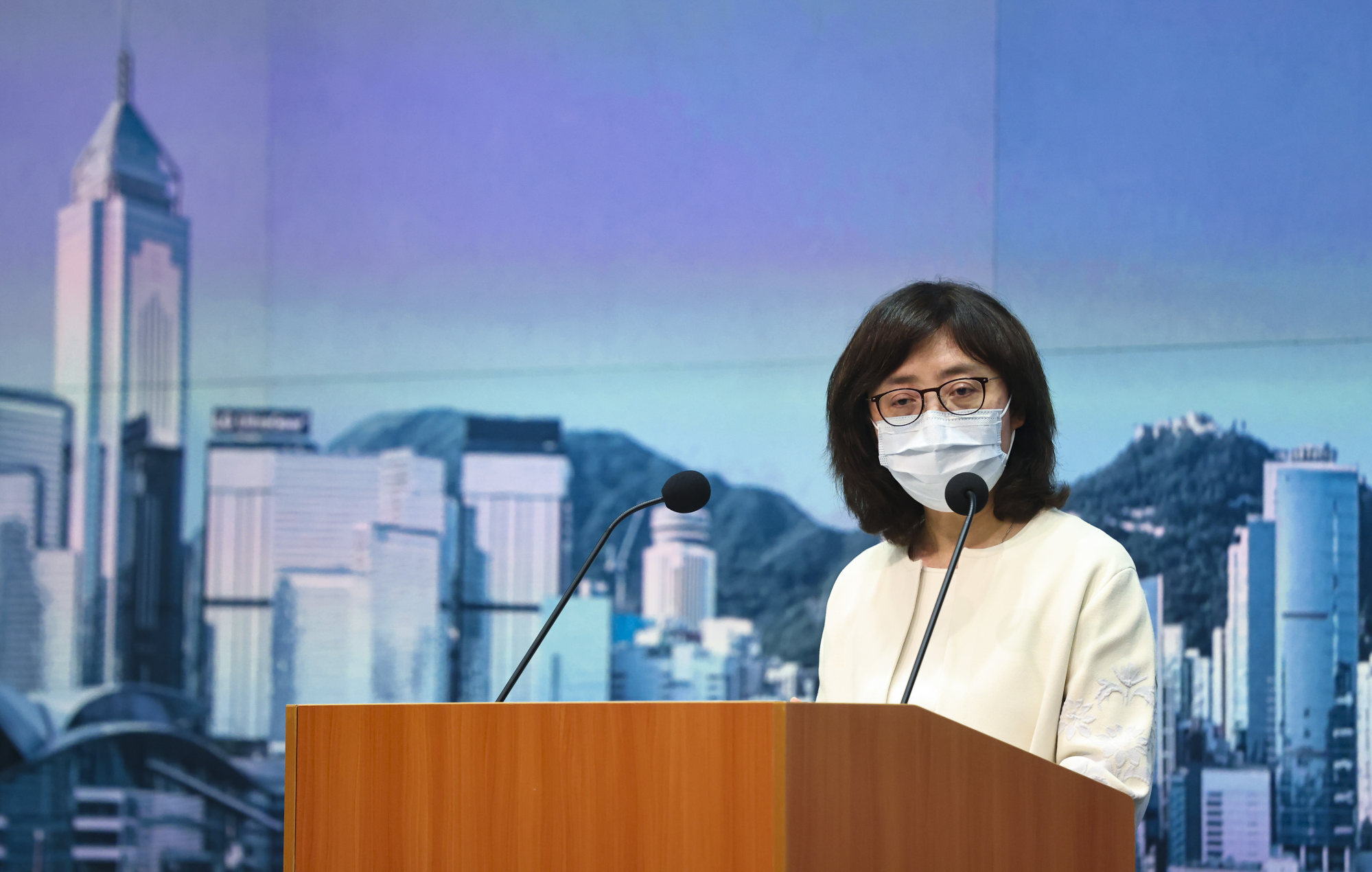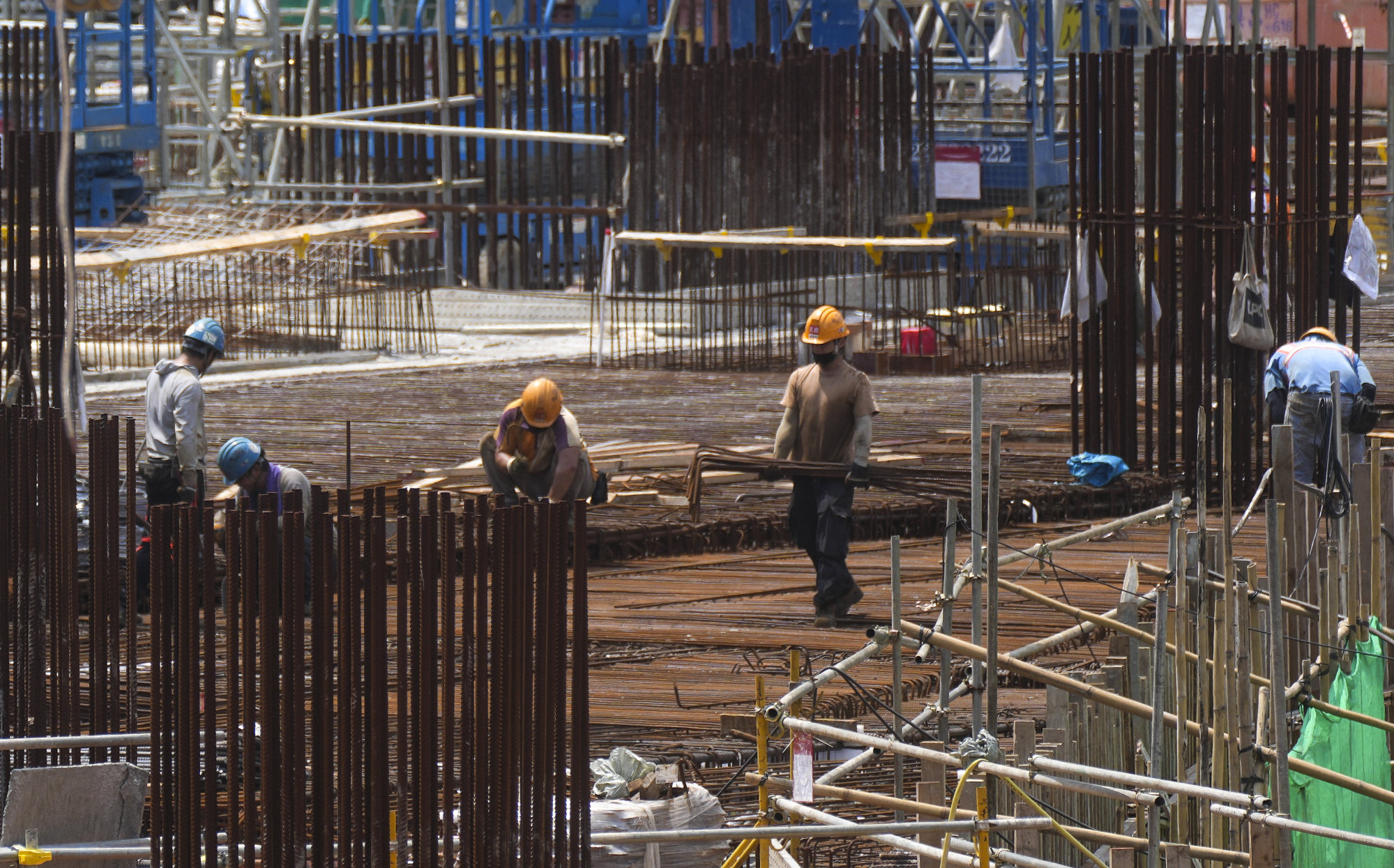
Hong Kong’s development chief says companies granted land at proposed technopole will be banned from leaving it vacant, arbitrarily selling or changing use
- Secretary for Development Bernadette Linn says maximising land premiums is not a top priority for San Tin Technopole
- Lawmakers and groups voice concerns over regulation of granted land lots, including whether terms will favour companies
Hong Kong’s development minister has said companies that could be granted land at a proposed technology hub near the city’s border with mainland China will be banned from leaving the site vacant and arbitrarily selling or changing its use, as part of an effort to address public concerns over the potential move.
Secretary for Development Bernadette Linn Hon-ho on Saturday said maximising land premiums was not the government’s top priority for the San Tin Technopole, a proposed technology cluster in the north, under which authorities were considering allocating sites directly to companies for specified uses instead of relying on the traditional open tendering practice.
“Regarding land for innovation and technology use, we will prioritise our policy aim, which is to foster the development of Hong Kong as an innovation and technology hub,” Linn said.

“But land cannot be granted for free … We previously granted land at concessionary rates, but we will need something in return, which can probably be mentioned in the land lease and operating agreement to ensure Hong Kong is getting the most benefits.”
Linn said the government would stipulate the total gross floor area for innovation and technology use and forbid companies from leaving the site vacant, or arbitrarily selling or changing the land use.
Linn also said the land could only be granted with the approval of the city’s leader and members of the Executive Council, the government’s key decision-making body, adding the administration had previously allocated sites at market rates.
The government has earmarked 627 hectares (1,549 acres) of land for the San Tin Technopole, including 300 hectares, an area equivalent to Shenzhen Innovation and Technology Zone across the border or 17 Hong Kong science parks, designated for innovation and technology purposes.
Hong Kong aims to earmark 300 hectares of land for I&T purposes near border
Authorities have also reserved plots ranging in size from under 10 to 70 hectares in the innovation and technology park to accommodate company facilities, such as laboratories and residential sites for staff.
Lawmakers and concern groups have voiced questions about the regulation of granted land lots, including whether the terms will favour the companies and the potential conversion of I&T sites into residential areas.
Linn said the administration could also take back the land if terms were contravened, adding targets such as companies’ productivity, economic benefits and number of workers hired could possibly be included in the deal.
The Innovation, Technology and Industry Bureau was aiming to recommend specific I&T uses in the area by the end of this year, Linn added.
Hong Kong Northern Metropolis: what bold ideas will advisory panel come up with?
But Chan Kim-ching, founder of Liber Research Community, an NGO focusing on land and development policy, said Linn’s latest remarks had failed to address concerns about turning I&T sites into property projects, even if the government banned companies from arbitrarily changing land use.
“Property projects are not only about building homes,” he said. “The government has plans to allow companies leasing spaces to start-ups. It will be unreasonable for such companies, which were granted land at cheap prices, to be allowed to generate rental income from start-ups.”
Chan added that authorities should also reserve sites for local companies, instead of just transnational ones.
Development chief vows to help Hong Kong factories uprooted by housing push
According to authorities, land formation work in the technology hub will begin in the last quarter of 2024, and I&T sites could be allocated as early as 2026.
It also aims to create a city centre on the remaining 327-hectare land to provide more than 50,000 homes from 2031 onwards.
As a proposed railway development in the area will only be ready in 2034, Linn said the government would try to arrange bus and minibus services for workers and residents there.
San Tin Technopole falls under the government’s Northern Metropolis scheme, which will turn 3,000 hectares of land in the New Territories near the border with the mainland into an economic and housing hub, with aims to create 650,000 jobs and build more than 900,000 flats.
Most Hongkongers back huge reclamation plan, officials say, but greens disagree
Experts and veteran politicians have urged the government to prioritise the metropolis plan over “Lantau Tomorrow Vision”, a 1,000-hectare reclamation proposal for waters off Lantau Island to build 210,000 flats and create the city’s third business district.
Linn on Saturday reiterated that both projects had to be completed as they would increase land supply in the coming decades, adding that the government would proceed with plans in stages based on demand and finances.
The minister also said authorities would soon reveal plans to import labour for the construction industry to address concerns about an ageing workforce amid an expected increase in infrastructure projects.
The government would also strengthen training and introduce new technology in the industry, she added.

Separately, the Urban Renewal Authority’s managing director Wai Chi-sing on Saturday said the statutory body would rely on loans to push forward redevelopment projects as four of them were expected to generate less income under current market conditions, while it had to pay some HK$40 billion to acquire ownership of flats in six other projects.
Wai added the profit-making body’s compensation arrangement for owner-occupiers of flats should be reviewed at a suitable time. Currently, total compensation is equivalent to the market price of a seven-year-old home in a building of comparable quality.
“Why do I need to use so many social resources to help some owners of properties? Many of them have not fulfilled their duty of building maintenance,” he said.
“If we put the money, for example in the Lantau Tomorrow Vision project, the land reclaimed can be used to support urban renewal. Wouldn’t that be more economically beneficial?”
Necessary to import workers if Hong Kong labour crunch persists: John Lee
Wai said the board had only received an income of HK$4.7 billion from upfront payments related to projects in To Kwa Wan and Sheung Wan, 20 per cent less than expected.
Its revenue was affected by the withdrawal of tenders in the Kwun Tong redevelopment project in February, he added.

